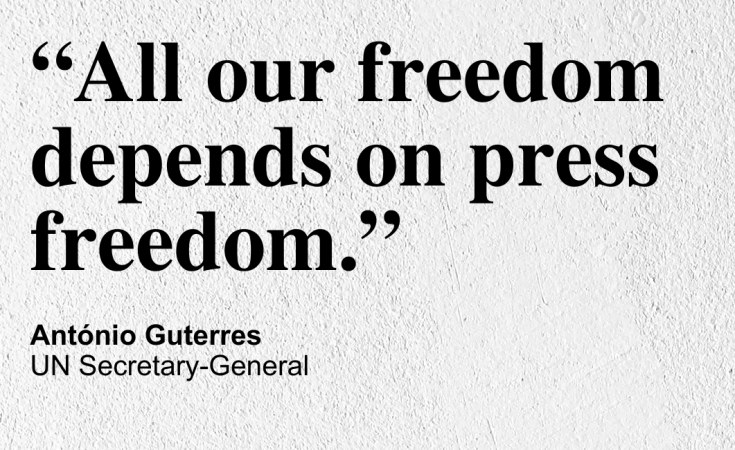Cape Town — The International Fund for Public Interest Media (IFPIM) has launched the International Fund for Public Interest Media, an initiative intended to support public interest media around the world. The non-governmental organisation explains that the creation of the fund was a reaction to the eroding advertising-based business model, something that was exacerbated by the Covid-19 pandemic which saw shrinking revenues. In 2020, newspapers alone suffered a global revenue loss of U.S.$30 billion.
At the 2022 Paris Peace Forum, Minister for Europe and Foreign Affairs Catherine Colonna reaffirmed France's commitment to IFPIM following President Macron's endorsement of the Fund. France will host the International Fund's headquarters in Paris and provide up to €15 million in support to the Fund for between 2022 and 2024. The IFPIM aims for the fund to support low and middile income countries while forging a sustainable future for global media ecosystems.
According to the IFPIM, only 0.3% of overseas development assistance (ODA) — around U.S.$430 million — goes to supporting media globally. The non-governmental organisation adds that, amid political threats to journalists and independent reporters, only 13% of the world's population have access to free media. The consequences of eroded public interest are potentially catastrophic, the IFPIM warns, with serious implications for electoral politics, corruption, and meeting the Sustainable Development Goals (SDGs), which are increasingly endangered by growing misinformation.
The Fund's mission
The Fund is structured to enable a broad multilateral coalition to unlock new resources in support of public interest media globally while maintaining the independence of both the Fund and its public interest grantees.
Co-chaired by Maria Ressa, Nobel Peace Prize winner and co-founder and CEO of Rappler, and Mark Thompson, former president and CEO of The New York Times Company, its mission is to ensure a complete shift in how public interest media is resourced, with the greater of ensuring it is independent, inclusive and resilient.
"When independent media is weakened, it impacts all of society and threatens democracy. Corruption can be expected to rise. Violent extremism — often fueled by corruption — finds more fertile ground. Social cohesion is diminished, particularly where media falls into the hands of those who co-opt it to advance their own political or factional agendas. Conflict and instability become more likely. To avoid the collapse of vital independent media, we need a more coordinated global response that creates a step change in support," the IFPIM said.


